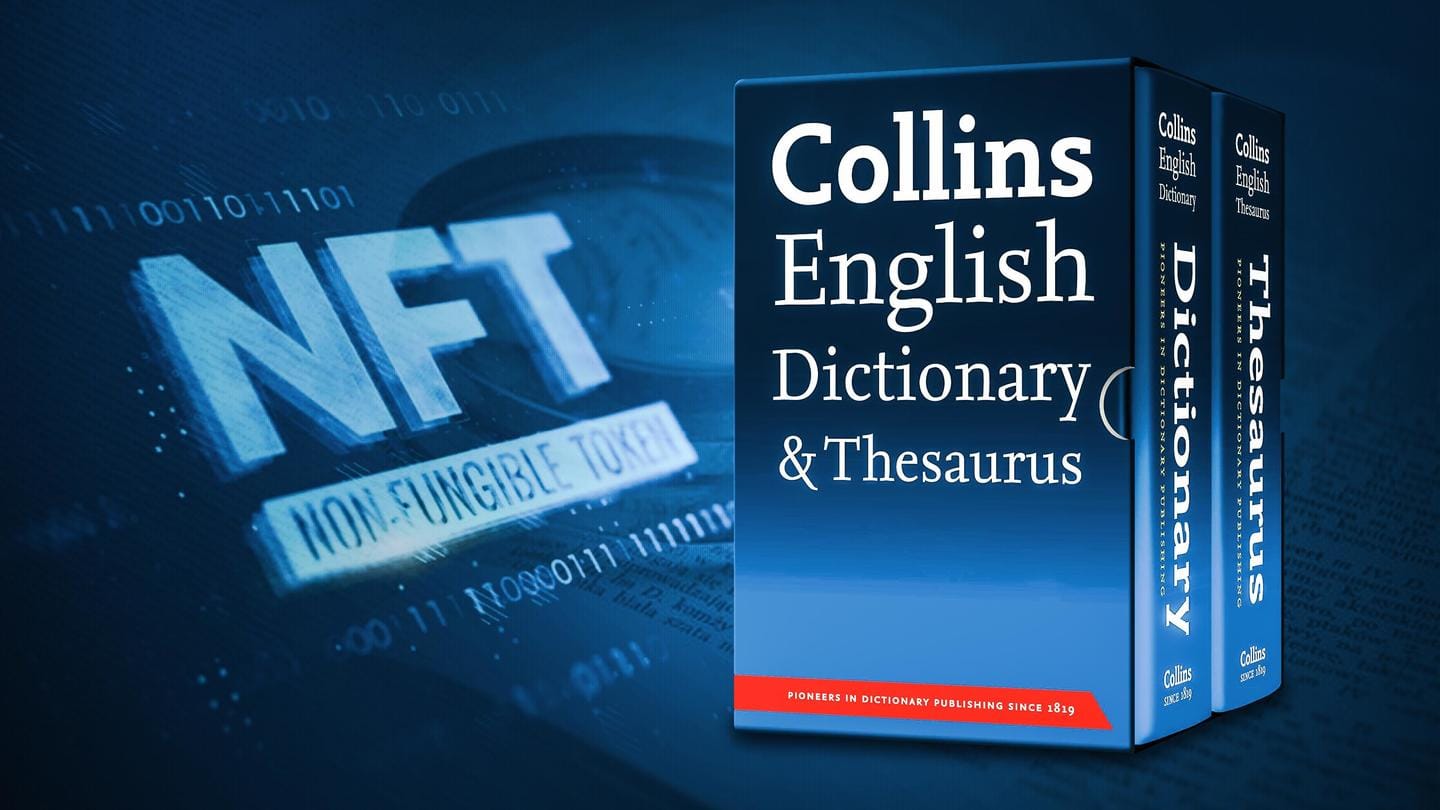
Collins Dictionary crowns 'NFT' as Word of the Year 2021
What's the story
The Collins Dictionary has recently proclaimed "NFT" as its Word of the Year 2021. Interestingly though, it isn't a word, but an acronym that stands for non-fungible token.
Other technology-related terms that made it to the list of popular new words include "metaverse" and "crypto," and justifiably so.
The words were selected from the Collins Corpus, an analytical database with over 4.5 billion words.
Significance
Why does the story matter?
Every year, the vocabulary associated with our culture and technology is evolving. Popular dictionaries such as Oxford English Dictionary and Collins Dictionary compile a list of words coined by innovators, technology companies, and colloquialisms.
Despite the pandemic, several technological developments and Facebook's renaming to Meta saw the creation of words we wouldn't have used otherwise, such as metaverse, double-vaxxed, and pingdemic.
Defined
NFT is a unique 'digital certificate' assigned to collectibles, artwork
Collins declared NFT as the word of the year. In theory, an NFT assigns a unique digital identity to tangible and intangible assets, even tweets. Changes in ownership of NFTs are recorded on the blockchain.
Collins defines an NFT as "a unique digital certificate, registered in a blockchain, that is used to record ownership of an asset such as an artwork or a collectible."
Twitter Post
Collins Dictionary added some quirky words this year
BREAKING NEWS The Collins Word of the Year is… NFT.
— Collins Dictionary (@CollinsDict) November 24, 2021
Find out more about #CollinsWOTY 2021 and see the full list here: https://t.co/gmsnCqA0yv#wordoftheyear #CollinsDictionary #NFT pic.twitter.com/XPhUM7oIoZ
Get tech-savvy
Crypto, metaverse, pingdemic, climate anxiety make it to the list
Other newly-coined technology-related words on the list include crypto—a digital currency used for online purchases, metaverse—defined as "a proposed version of the internet that incorporates three-dimensional virtual environments," and climate anxiety—distress caused by concern about climate change.
New pandemic-related words include pingdemic—a word for large-scale notifications to the public by contact-tracing apps as well as double-vaxxed—one who has received two doses of a vaccine.
COVID-19 effects
Gen-Z slang 'cheugy' is now a word
Besides these, some other noteworthy Gen-Z inspired mentions include Regencycore—a word to describe clothes worn by the high society during the Regency era (1811 to 1820), Neopronoun—a recently-coined pronoun to avoid "gender distinctions," and cheugy—slang for something that isn't fashionable anymore, often referencing someone/something from the 2000s.
Hybrid work also made it to the list. Surely we don't need to explain it to you?